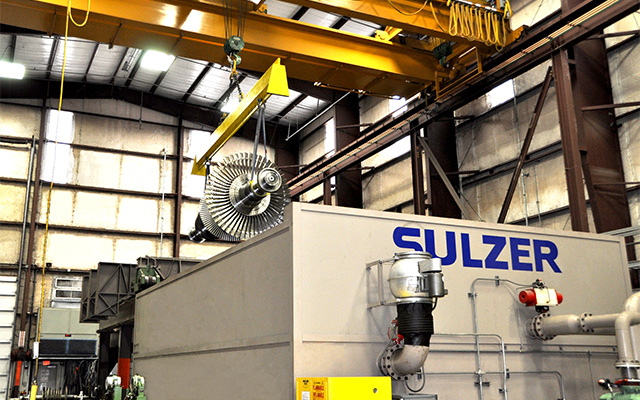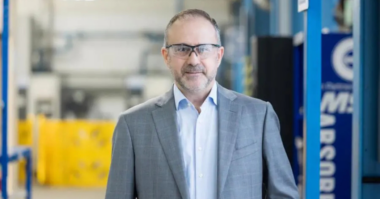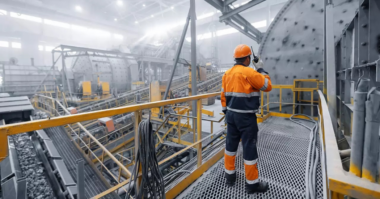Since September 1996, the at-speed balancing bunker in Sulzer’s Houston Service Center has been performing a critical service for clients from all over the world. As an integral part of the diagnostic and repair process for large rotating components, this facility offers plant owners and OEMs a specialty service that ensures continued reliability.
Over the past 20 years, Sulzer’s at-speed facility has balanced over 2,800 rotors. At-speed balancing significantly reduces the need for costly and time-consuming field balancing and is an essential part of improving the performance and reliability of rotating machinery. By minimizing vibration, equipment runs more smoothly which helps to maintain reliability and reduce servicing costs.
In practical terms, at-speed balancing ensures correct static and couple balance reducing the radial movement at both critical and running speeds of the rotating device. It also relieves assembly stress or ‘relaxation’ of the rotor by operating under full centrifugal stress prior to final balancing.
Progressive stacking and balancing of a rotor can provide a reasonably low-level of vibration using low-speed dynamic methods. This method has been used by Sulzer many times to fix a rotor with a poor vibration history.
However, progressive stacking and balancing does not assure a smoothly running, assembled rotor, because it does not account for the vibrations caused by system excitations as it is accelerated through the critical speed bands and up to its operating speed. These issues only become apparent with at-speed analysis; a service that is only available from a very select number of providers.
Using vibration diagnostics to analyze the radial vibration at the bearings and mid-span deflection ensures that the best balance is achieved at operating speed as well as minimizing the deflection and vibration amplitudes during ramp up and coast down.
The objective of any balance process should be to use the minimal number of weights and/or material removal to correct any imbalance in the rotor. Sulzer achieves this by using a dedicated vacuum chamber, “bunker”, and advanced electronics to achieve precision-balanced component. The bunker itself is designed to accommodate turbomachinery up to 30 feet (9 meters) in length, 8.5 feet (2.59 meters) in diameter, and up to 50,000 lbs (25 tons) in a vacuum chamber with speeds up to 40,000 rpm.
There are a number of situations where high-speed balancing is considered a requirement, either as part of general maintenance or at the conclusion of an overhaul. Some rotor designs are very long and flexible, which makes them more susceptible to vibration, while in certain other designs, high-speed balancing is considered essential.
Rotors that exhibit high vibration as they pass through their critical speeds or run at or near their critical speeds should be included in this group along with rotors that are used in high-revenue services and those destined for inaccessible locations, such as offshore facilities.
In all of these scenarios, Sulzer delivers a complete, turnkey solution, including field service teams. In order to maintain a high level of service to its clients, Sulzer continues to invest in its personnel and facilities.
About Sulzer
Sulzer is the leading worldwide, independent service provider for the repair and maintenance of rotating machines including turbomachinery, pumps and electro-mechanical equipment. With a global network of over 150 technically advanced manufacturing and test facilities, Sulzeroffers a collaborative advantage that delivers high-quality, cost-effective, customized and turnkey solutions, providing its customers with the peace of mind to focus on their core operations.
Sulzer Rotating Equipment Services, a division of Sulzer, can accommodate all brands of rotating equipment including turbines, compressors, generators, motors and pumps. With an enviable track record, dedicated teams of on-site engineers provide best-in-class solutions to ensure that the most effective service is delivered.
Sulzer is dedicated to providing superior service solutions to a range of industries including power generation, oil and gas, hydrocarbon and chemical processing, water and air separation. Every solution is customized to suit the business needs of each application – whenever or wherever that may be.
With a long history of providing engineering service support, Sulzer is headquartered in Winterthur, Switzerland where it began in 1834. Today, with sales over US$ 3 billion and with approximately 15,000 employees, the Sulzer footprint spans across the globe. The core aim is to deliver a flexible and cost-effective service that optimizes customer operational efficiency and minimizes downtime.
For more information on Sulzer, visit www.sulzer.com.




